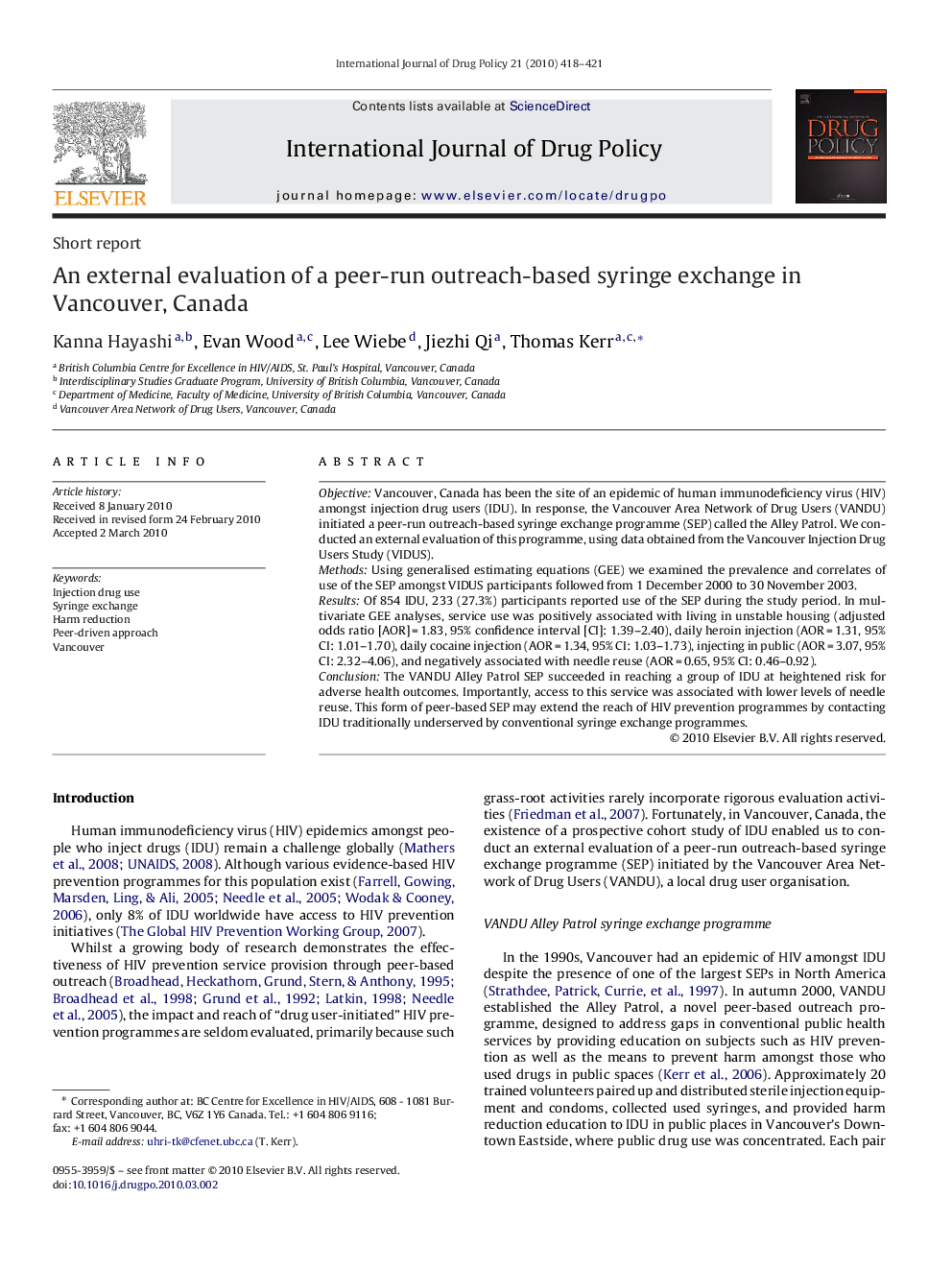| Article ID | Journal | Published Year | Pages | File Type |
|---|---|---|---|---|
| 1075363 | International Journal of Drug Policy | 2010 | 4 Pages |
ObjectiveVancouver, Canada has been the site of an epidemic of human immunodeficiency virus (HIV) amongst injection drug users (IDU). In response, the Vancouver Area Network of Drug Users (VANDU) initiated a peer-run outreach-based syringe exchange programme (SEP) called the Alley Patrol. We conducted an external evaluation of this programme, using data obtained from the Vancouver Injection Drug Users Study (VIDUS).MethodsUsing generalised estimating equations (GEE) we examined the prevalence and correlates of use of the SEP amongst VIDUS participants followed from 1 December 2000 to 30 November 2003.ResultsOf 854 IDU, 233 (27.3%) participants reported use of the SEP during the study period. In multivariate GEE analyses, service use was positively associated with living in unstable housing (adjusted odds ratio [AOR] = 1.83, 95% confidence interval [CI]: 1.39–2.40), daily heroin injection (AOR = 1.31, 95% CI: 1.01–1.70), daily cocaine injection (AOR = 1.34, 95% CI: 1.03–1.73), injecting in public (AOR = 3.07, 95% CI: 2.32–4.06), and negatively associated with needle reuse (AOR = 0.65, 95% CI: 0.46–0.92).ConclusionThe VANDU Alley Patrol SEP succeeded in reaching a group of IDU at heightened risk for adverse health outcomes. Importantly, access to this service was associated with lower levels of needle reuse. This form of peer-based SEP may extend the reach of HIV prevention programmes by contacting IDU traditionally underserved by conventional syringe exchange programmes.
